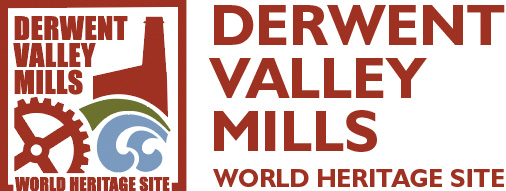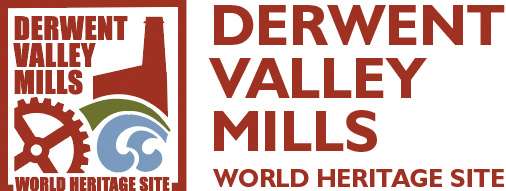da06

This is part of a heritage trail around Darley Abbey, taking in some of the key historic areas. You can find a map of the trail, and information on where to find interpretation boards containing more details on the town and its history at www.derwentvalleymills.org/darleyabbey.
The Darley Abbey Mills and their global cotton connections
The Mills
In 1773 Edmund Evans paid Abraham Hirst of Derby £1010-10s-0d for a corn mill, a paper mill, a flint mill and a china mill together with other buildings used by the paper mill; and this with further purchases made by his brother Thomas Evans in 1774 and 1775, secured for them all the industrial premises then extant in Darley Abbey.
Their first cotton mill, in partnership with Richard Arkwright, was built in 1782, and insured for £800, although production may not have begun until 1786. In 1788 it burnt down and was rebuilt – the replacement is now known as the Long Mill.
Further mills were added, and growth continued until c.1830, by which time more than 500 people were working on the site. The Evans involvement in the business ceased with the death of Walter Evans in 1903. John Peacock, who had been manager, bought the mills from his estate. The Peacocks ran the business until 1943, when it was taken over by J & P Coats. In 1969 the sale of the mills for other uses began.
Darley Abbey Mill and Enslaved Labour
Surviving records relating to the Darley Abbey Mills demonstrate that the Evans family were heavy users of raw cotton produced by enslaved African people. Their main raw cotton supply areas in the 1780s-1800s, were the Caribbean and Brazil, with cotton from the southern states of America sourced after 1804.
Early surviving letters written from Darley Abbey mill in 1787, detail brokers like William Purdy of Tower Street, London, who supplied the mill with cotton cultivated in places like Barbados and Grenada in the Caribbean. Later, the records of cotton broker Nicholas Waterhouse show substantial raw cotton purchases between 1799-1800, with around half supplied by known slave traders or plantation owners. John Bolton was a core supplier. In July 1804, a first mention of American cotton appears with a note that ‘New Orleans’ cotton was supplied by Cropper and Benson of Liverpool.
Following abolition of slavery in the British colonies in 1833, Darley Abbey Mills, in common with other British cotton spinning mills, continued to purchase raw cotton produced by enslaved labour in America. On 24 December 1851, the ‘Ladies of the Anti-Slavery Society Association of Derby’ supported an advert in the Derby Mercury reminding people that the ‘great bulk of cotton imported into this country is from America’, and was cultivated by the ‘cruel and unchristian system’ of enslavement. They informed the reader that some American plantation owners used free labour and this cotton was consigned to certain British manufacturers like ‘Crewson’ of Preston and made up into garments, and was sold by draper George German of Cornmarket, Derby. This advert may have been pointing the finger at the lack of action in purchasing ethical free-labour raw cotton by the cotton spinning manufacturers of the Derwent Valley, including the Evans.
In July, 1862, the continued reliance on cotton cultivated by enslaved labour at Darley Abbey was noted in an article published in the Illustrated Times. Writing during the ‘fierce hate’ of the American Civil War, the author considered the disruption of the raw cotton trade to Britain by the Union blockade of the Confederate ports. Inside the mill, they reflected on the connection between the Darley Abbey mill spinning the ‘finest American’ cotton with ‘cotton lords’, ‘slaves, and their drivers’.
More information can be found at http://www.derwentvalleymills.org/discover/derwent-valley-mills-history/derwent-valley-mills-key-sites/key-sites-darley-abbey-mills/ and http://www.derwentvalleymills.org/discover/derwent-valley-mills-research/recent-research/global-cotton-connections/
Ben Abbot from the Museum of Making at Derby Silk Mill was recorded in conversation with Cath Feeley from the University of Derby, discussing the Darley Abbey Mills and Enslaved Labour. It can be heard here.

